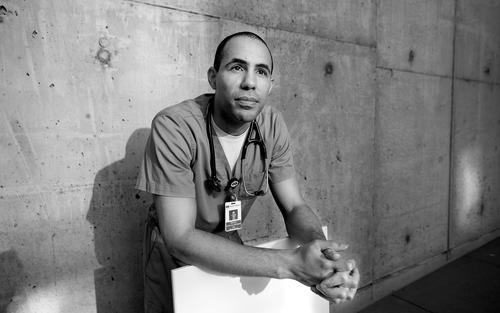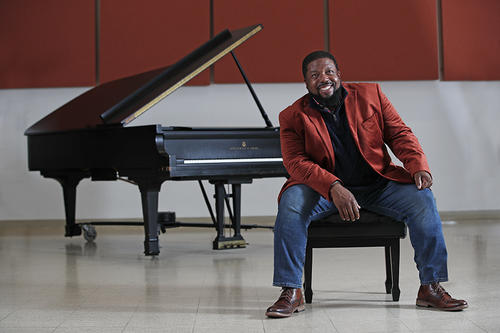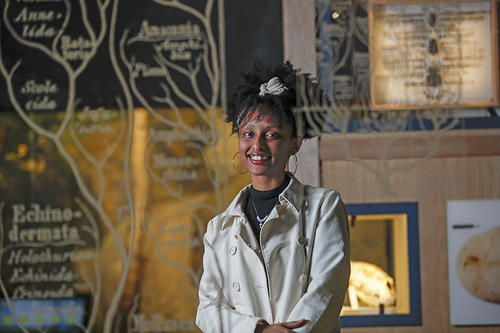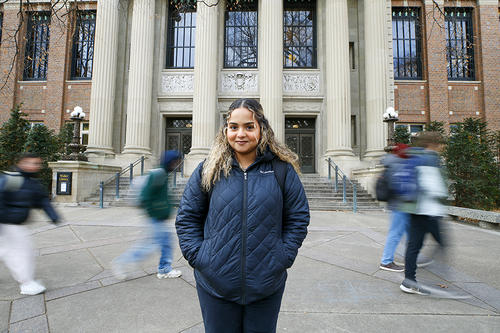
The art of storytelling in medicine
“Stories have power,” says Anthony Williams, an internal medicine and pediatrics physician and associate program director of the U of M’s Internal Medicine and Pediatrics Residency Program.
Williams would know. His moving stories of race and marginalized communities in healthcare have been featured in the Journal of Graduate Medical Education, and in the Twin Cities Public Television (TPT) specials “Hippocrates Cafe: Reflections on the Pandemic” and “Speaking of Race” featuring physicians’ stories on race, racism, and antiracist efforts in the medical community.
Williams is also an associate director of the Center for the Art of Medicine (CFAM), which houses the Storytelling in Medicine Program at the University of Minnesota Medical School.
“It's almost like human beings are wired to tell stories and to receive stories,” Williams says. “And so the idea of being more intentional and cognizant of the power of stories appeals to a lot of us at CFAM.”
The thinking of Williams and his colleagues at CFAM goes like this: As much can be said about a society through the stories it chooses to tell, as by the stories that are not told. They believe that the stories of marginalized communities and historically disenfranchised groups need to be told as much in the field of healthcare as they do elsewhere.
CFAM incorporates the arts into medical education through reflective writing electives for both medical students and residents, writing workshops, live storytelling events, and other more formal educational opportunities.
Williams’ own work includes personal stories, as in “Unspoken,” a spoken word piece about racial inequities in the medical industry and prison system, and the stories of his interactions with his patients, as in “A Human Space.”
These stories offer remarkable insight into what it will take for true transformation to occur regarding issues of race and identity in America from a doctor who cares deeply about people and patients.
Williams talks about his work here and in the featured video.
On the difference stories can make in society…
The idea of a story is that it can take people to places that we may not have been ourselves. So when I think about story and marginalized communities and experiences, I think about the opportunity to share stories with people who may have never heard or experienced such things before. Some of the most beautiful things that we create come from pairing a variety of perspectives. So let's get all of these perspectives in the room, let's share our stories, let's look through all these different lenses and learn from that.
On his work “Unspoken” and why stories matter to him personally…
I am obviously approaching this from a marginalized perspective. I identify as a Black man and a Black man in medicine. And so we are, by the numbers, an underrepresented group. As I progressed through medical school and residency to eventually become a practicing physician, this is still the lens that I carry.

The piece “Unspoken” was essentially a contrast between myself and a really good friend in prison who grew up in similar places and who society would look at now and judge very, very differently. It would judge one of us very harshly and judge one very favorably and link that to intrinsic moral values. But there are many, many groups of people who don't have the resources or the safety nets that other groups of people have, and so suffering is then compounded.
Where I am today, people look and say, “You are a physician. You have been successful. You have made it.” But that assessment of success, of value to society … to me feels somewhat up to chance. There are many times in my life where I felt like if I had made a different decision or I hadn't had the support that I had from others, that I would be in a vastly, drastically different place than I am today. And so while I can take and I do take pride in my accomplishments, it’s important to recognize that these accomplishments aren't mine alone.
Center for the Art of Medicine programs
The Storytelling in Medicine Program promotes the creation and sharing of stories about the lived experiences of healthcare workers and patients.
Hippocrates Cafe was created in 2009 by Dr. Jon Hallberg as a live show placing complex healthcare topics in context through story and song.
The Fisch Art of Medicine Student Awards allow U of M medical students to explore the arts and humanities in ways not typically emphasized in a conventional medical school curriculum.
Starting points for change
Explore the McNair Scholars Program, designed to increase doctoral program application and degree attainment by underrepresented and first-generation college students.


